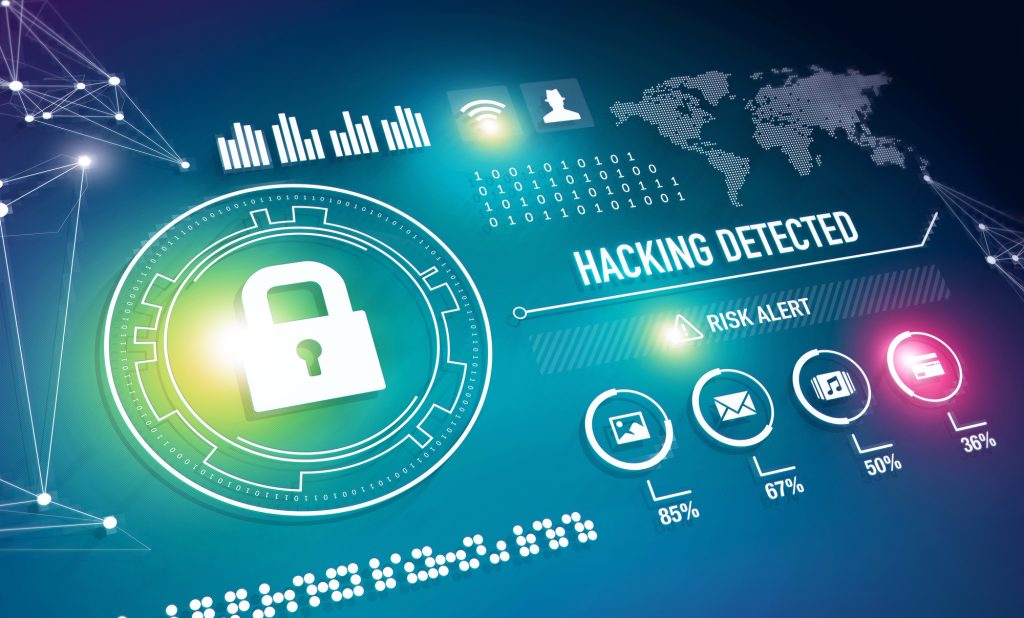In 2021, cyber incidents increased by 11 percent compared to the previous year. With the pattern of cybercrime increasing every year, businesses are more vulnerable than ever.
Cybercrime is a serious threat, but your business’s website doesn’t have to be defenceless. We’ll walk you through some basic cybersecurity tips, so your website stays safe.
What Is Cybersecurity?
Cybersecurity is protection against data breaches, hacking, or anything else that may threaten your digital security. By implementing cybersecurity, you reduce the risks of cyberattacks.
Why Is Cybersecurity Important?
Cybersecurity is your frontline of digital protection. Without cybersecurity, you’re vulnerable to common cyber threats such as:
- Malware: harmful software
- Denial of Service (DoS): system overloading
- SQL injection: harmful SQL code
- Phishing: fake messages prompting harmful actions
All of these threats can lead to data breaches, hacking, and other forms of cybercrime. If you don’t understand the basics of cybercrime, you’ll be an easy target for these attacks – especially if you’re new to building a website.
Another aspect of cybersecurity is disaster recovery. If your business becomes a victim to cybercrime, quick and effective disaster recovery can minimize the damage.
Cybersecurity Tips for Your Website
Now that you know why to implement cybersecurity, it’s time to learn how to implement cybersecurity. Protect your business from cybercrime with these six cybersecurity tips.
1. Use Anti-Virus and Anti-Malware Software
You should invest in anti-virus and anti-malware software to protect and destroy against threats infecting your device.
Anti-virus and anti-malware programs aren’t perfect, so it’s important to have both for multiple layers of protection. Though anti-virus and anti-malware are similar, there are a few differences to consider.
Anti-Malware
Malware is a broad term for any software with malicious intent. Anti-malware will protect your computer against the most common malware threats.
Anti-Malware:
- Scans, detects and removes malware
- Regularly updates to identify new threats
- Provides online banking protection
- Protects against anti-phishing
Anti-malware will likely come with additional features, so check and compare services before you purchase anti-malware.
Anti-Virus
Viruses are a common type of malware. Download anti-virus software to protect against computer viruses. A virus is a software that can harm your computer and spread hidden in files.
Anti-Virus:
- Scans for viruses
- Prevent malicious files from running
- Removes viruses
- Protects from ransomware
Many ant-virus programs offer other features, depending on the software.
2. Update Your Passwords
Is your data password protected? Passwords are a basic security defense against data breaches, so try to implement passwords as much as possible.
People and programs can guess passwords quickly if they’re not long or varied enough. To have effective password protection, your passwords need to be long with a combination of letters, numbers, and special characters.
The most effective password will include the following:
- At least eight characters
- A combination of letters, numbers, and special characters
- Upper and lowercase letters
- Avoid common words and phrases, ie “password1” or “9999”
You want your passwords to be as random, varied, and lengthy as possible.
Make sure you have different passwords for different levels of data, and only share passwords with people who need direct access to that data.
3. Enable two-Factor Authentication
A password is easy to implement, but it’s far from the perfect cybersecurity strategy.
That’s why most businesses have started using two-factor authentication – and you should too. The process of two-factor authentication forces any user to present two different pieces of evidence for access.
For example, you may need to give your username and password as well as a code from your email in order to be granted access.
By using two-factor authentication, you can ensure that only trusted people will have access to important data. If someone finds an employee’s password or hacks their password, the two-factor authentication prevents them from gaining unauthorized access.
4. Train Your Employees
You need to train your employees and yourself on the basics of protecting data and safely navigating the digital world.
Some cybercrimes rely on taking advantage of others’ naivety. Without understanding cybersecurity basics, you won’t know how to identify, avoid, or prevent potential threats.
There are a few ways to train your employees on the basics of online safety.
One way is to train them yourself, though this can be difficult if you don’t have a background in IT.
The best method is to hire someone to teach a quick class on online safety and data protection. An expert knows the most vulnerable areas in IT and the most common human errors, so they’ll know what information to focus on teaching you and your team.
5. Back Up Your Data
Backing up your data is critical for the security of your business. In the event that your business is the victim of a cybercrime, cybercriminals may steal or delete your data. To prevent more damage, you may also need to delete data.
Cloud-Based Storage
You can back up your data on the cloud, off-site storage that allows you to store data through the Internet. By storing data in the cloud, your data is saved somewhere completely separate from your devices.
External Hard Drives
Another option is using external hardware to store data. You can connect the external hard drive to your device, save your data, and then disconnect it.
Physical Storage
You can print important files and keep physical copies of your data on hand. If you use this method, however, your data is extremely vulnerable to others without physical security to protect it.
6. Run Your Business Website on a Web Hosting Platform
Web hosting is a service that provides and maintains secure storage spaces on web servers. Web hosting platforms host your website, so it’s important to find a reputable, high-quality web hosting service for website security.
The ideal web hosting service will include the following features:
- Website building program
- Data back up
- 24/7 monitoring
- 2-Factor authentication
- Desktop and phone optimization
- Security and firewalls
- And more
As you can see, the right web hosting platform will cover many areas of cybersecurity and website management for you. Not only that, you can also consult with IT experts to determine how secure your website is.
For user-friendly website hosting and expert website hosting support, you can choose a web hosting package through JWHost. We have a range of web hosting plans to secure your website, optimize your site loading speed, and more.
Protect Your Business With More Cybersecurity Tips
You can use these cybersecurity tips to protect your business’s website and prevent cybercrime. The most important part of cybersecurity is computer literacy, so keep your employees and yourself educated on the basics of data protection.
Looking for more cybersecurity tips? Talk to our hosting experts today for information on protecting your business’s website.



